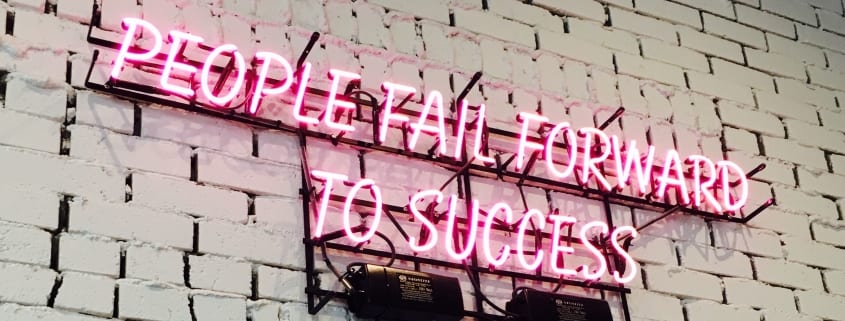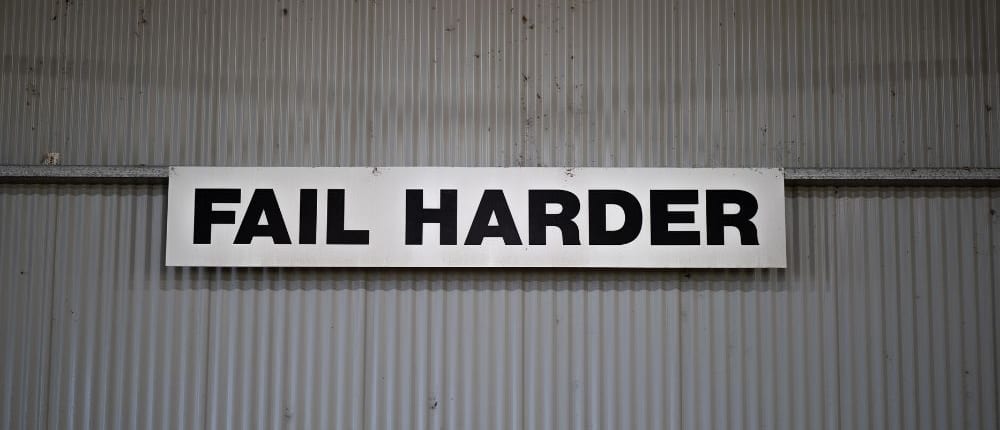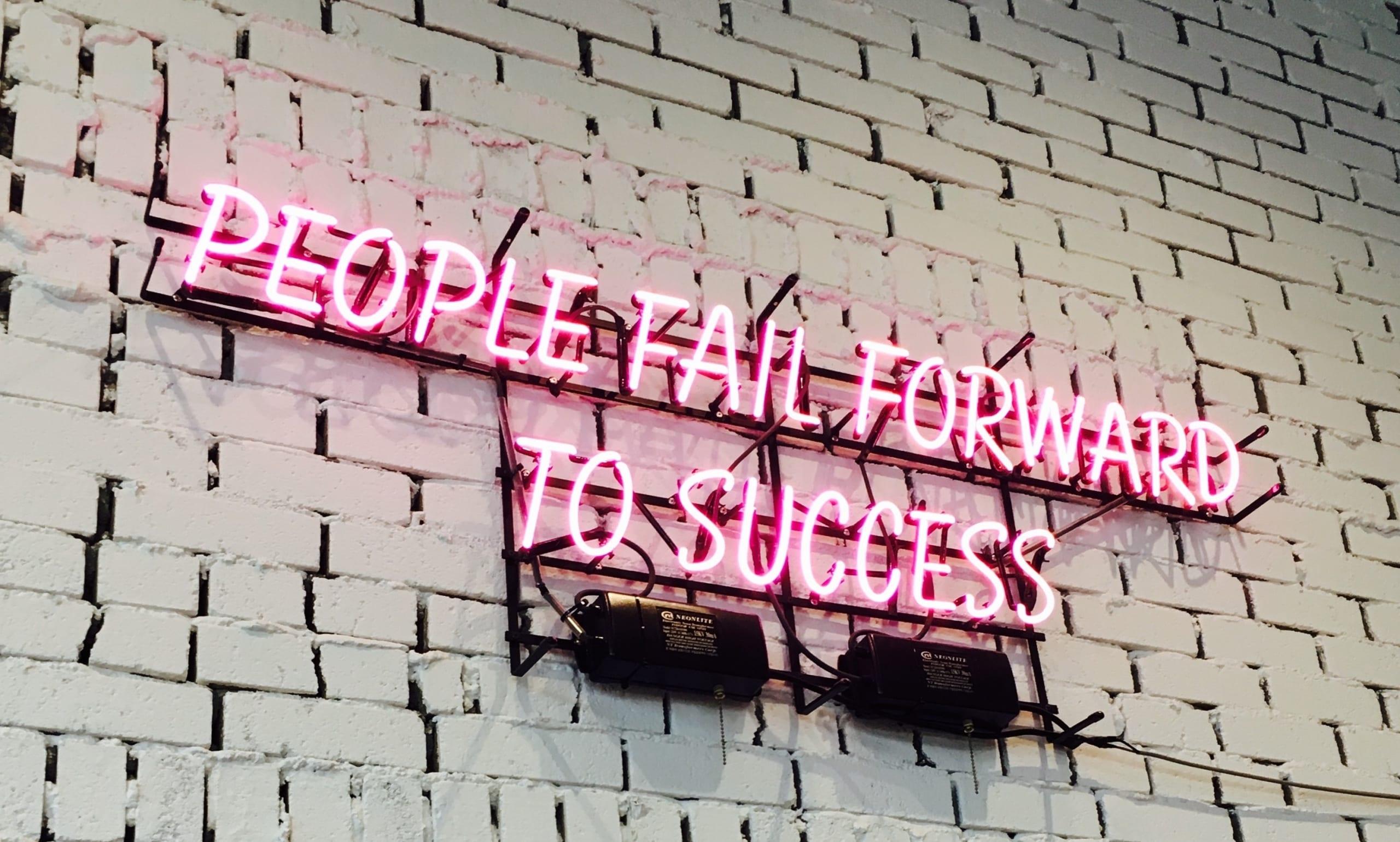
Flunked tests and big mistakes. Auditions that go nowhere and record labels that decide not to sign you. Embarrassing performances and rejected manuscripts.
How many of these failures do you have under your belt?
The short answer: not enough.
Failure is a non-negotiable part of success. Yes, failing is essential for learning.
Musician and educator, Eloise Ristad, explains that “when we give ourselves permission to fail, we, at the same time, give ourselves permission to excel.”
Failures are not only inevitable, they are valuable. Failures inform us what isn’t working. Failures remind us that we are in motion – that we are actively trying and taking risks.
Every failure is a stepping stone towards success, a notch in your belt, a rung on the ladder. Every time you miss a note or get rejected – you are one step closer to your goal.
That’s why every single failure – big and small – should motivate you.
“Failures remind us that we are in motion… taking risks.”
Welcome to the Club of Successful People Who Failed
Did you know that Henry Ford went broke five times and was advised to stay away from the automobile industry? Walt Disney, when looking to finance Walt Disney World, was turned down an impressive 300 times.
A whopping 12 publishers rejected J.K. Rowling’s Harry Potter manuscript, and five record companies chose not to sign the Beatles. After Fred Astaire’s first screen test, the studio report read: “Can’t act. Can’t sing. Slightly bald. Can dance a little.”
The most successful people among us have experienced spectacular failures. And what is the common thread? The famous words of Robert F. Kennedy explain it best: “Only those who dare to fail greatly can ever achieve greatly.”
Do you have failures you can tout? If so, it’s time to stop being embarrassed about them, and start celebrating them. If not? It’s time to take more risks on your learning journey.

Failure: Now Recognized as an Important Life Skill
Educators are recognizing the importance of celebrating and destigmatizing failure.
A Smith College initiative called Failing Well is one of several university programs designed to give high-achieving students the skills to cope with setbacks.
“What we’re trying to teach is that failure is not a bug of learning, it’s the feature,” said Rachel Simmons, a leadership development specialist in Smith’s Wurtele Center for Work and Life. “It’s not something that should be locked out of the learning experience…”
The program offers everything from workshops on imposter syndrome to discussions on perfectionism. When students enroll in Simmons’ program, they each receive an official Certificate of Failure. It’s a document that gives students clear permission to take risks, make mistakes, and mess up.
The certificate states: “You are hereby authorized to screw up, bomb or fail at one or more relationships, hookups, friendships, texts, exams, extracurriculars, or any other choices associated with college… and still be a totally worthy, utterly excellent human.”
These lessons in failing are important because they unlock doors for learners. These doors can open the possibility of failure, as well as the possibility of success.
You don’t need a university professor to issue a Certificate of Failure. You can give yourself that permission. You can even draw up your own certificate as a physical reminder that mistakes and setbacks aren’t just human, they are essential to growth.
“You are hereby authorized to screw up, bomb or fail… and still be a totally worthy, utterly excellent human.”
How to Use Failure as Motivation
“Failure is so important,” says author, J.K. Rowling. “… it is the ability to resist failure or use failure that often leads to greater success…”
Ballet dancer, Ashley Bouder is known for her daring, athletic performances. She is widely known for pushing herself hard, and it’s not unusual to see her fall during a ballet concert.
Bouder is celebrated as one of the top dancers in her field. And she is exciting to watch, in part because the audience knows she’s not afraid of falling. The fall is part of the process, part of the performance, and evidence that she is always reaching beyond. A fall – in her case – is a mark of excellence.
Do you want to be really great at learning? Practice failing. Get more mistakes under your belt. Get rejected more often. Reach for a skill that is slightly outside your comfort zone.
Because when you fail, you know you’re on your way to greatness.
Are you ready? Browse lessons to gain skills, have fun, and build a better you!
takelessons


